From the very beginning, Jason Isbell had a knack for showstoppers. Now known as one of the foremost songwriters in the contemporary American canon, at the turn of the millennium Isbell was just a young man from a broken home within spitting distance of the Alabama/Tennessee border. After spending much of his youth using an electric guitar to drown out the sounds of his parents’ fights, Isbell fell in with the crowd of studio musicians around Muscle Shoals, the legendary mecca of Southern rock music not far from Isbell’s hometown. Most notable among this crowd was David Hood, a session bassist with more credits to his name than one could ever reasonably summarize, who would later become a mentor for young Isbell, who was already demonstrating a mastery of the guitar that impressed even the seasoned veterans at FAME Studios.
Around the same time that Isbell was coming of age, David Hood’s son, Patterson, was finally finding his footing as a recording artist. Patterson Hood and his longtime friend and partner in crime Mike Cooley had spent the better part of a decade playing in bands around the South, and had built themselves a dedicated regional following without ever taking the next step up to real commercial success or garnering the attention of record labels that could help them get there. It wasn’t until 1996, when Hood was 30 years old, that he and Cooley officially founded the Drive-By Truckers, and not until 2001 did they finally strike gold with the release of an ambitious double concept album called SOUTHERN ROCK OPERA. Intoxicatingly raw and brutally honest about, as Hood puts it, “the duality of the Southern thing,” SOUTHERN ROCK OPERA attracted ample critical praise and landed the Truckers a Nashville record deal, establishing Hood and Cooley as ascendant songwriters in the process. However, the Truckers had been a band of fluid membership from the start—Hood and Cooley were already the only “original” members left—and not long after the release of SOUTHERN ROCK OPERA, third guitarist Rob Malone departed the band. While playing a house show and down a man in Muscle Shoals, Hood invited the family friend Isbell, 15 years his junior, to sit in with the band for the night. Two days later, he jumped in the tour van too, and that was that.
—
There exists a rare class of songwriting prodigy, like Bob Dylan or one of Isbell’s idols, John Prine, who almost seem to emerge from a chrysalis fully formed, imbued with seemingly decades of hard-earned wisdom and insight that can only come from life experience despite being barely old enough to legally drink. So it was with Isbell, who only contributed two songs to the next Drive-By Truckers album, but which were both so incredibly potent that they named the album after one of them: DECORATION DAY. An album revolving around families, relationships, and the always-complicated dissolutions thereof, DECORATION DAY proved the ideal follow-up to their big breakout, another triumph for Hood and Cooley as well as an emergence for Isbell, who proved immediately that he could hang with his far more experienced bandmates. The band landed on a Billboard chart (granted not the Billboard chart, but still) for the first time, and had firmly cemented themselves as indie darlings, hitting a stride with audiences at the same time as they were rounding into their creative zenith. It would only take them about a year to top themselves once again.
20 years ago, on August 24, 2004, the Drive-By Truckers released THE DIRTY SOUTH, a panoramic, multifaceted, and deeply revealing portrait of the American South, and by extension America as a whole, at the end of the 20th century. Never had the band’s three-headed hydra of songwriters been in sharper form, coming as close to an even three-way split as any Truckers album ever would—Hood contributing six songs, and Cooley and Isbell four songs each. THE DIRTY SOUTH is structured around two suites of songs loosely assembled around common themes. The first comes on the album’s A-side, four songs all concerned with re-examining major historical events and taking stock of what they actually meant for the people both directly and indirectly involved; Isbell’s “The Day John Henry Died” uses allegory to examine the displacement of labor and the eventual de-industrialization of America, leading to the exodus of paying jobs and honest work from the South, while Hood’s “Puttin’ People on the Moon” focuses on the impacts of the industry that remained, juxtaposing the symbolic victory of the moon landing with the catastrophic downstream effects of heavy metals and chemical pollutants poisoning the residents of poor communities near the rocket labs. The next two songs pivot towards pop culture: Cooley summons one of the greatest chord progressions ever in “Carl Perkins’ Cadillac” to revisit the beginnings of rock ‘n’ roll and the modern music industry in a cramped Memphis studio, and Hood uses “The Sands of Iwo Jima” to capture the knowing, melancholy smile on the face of an aging veteran when asked if the War was really how it looks in the movies.
The second thematic suite of THE DIRTY SOUTH concerns crime and policing in the rural South, specifically through re-assessing the story of Buford Pusser, a professional wrestler turned hardline, tough-on-crime sheriff whose story inspired the movie WALKING TALL. Where the movie depicts Pusser as a righteous force for good combatting the evils of corruption and gambling and more by any means necessary, the Truckers choose to depict the other side of the story, singing from the perspective of the criminals and lowlifes that Pusser sought to stamp out. “The Boys From Alabama” is a warning shot across the bow to any potential songbirds and snitches, while Cooley’s acoustic “Cottonseed” is sung from the perspective of an ex-con retelling stories of his heyday and pointing out the hypocrisy of those who exact retributory vengeance in the name of justice—“If they was to tie a noose they’d have to lay their Bibles down.” Hood addresses the Pusser story directly in “The Buford Stick,” offering an alternative view of the sheriff as a self-aggrandizing corrupt lawman high on his own supply, beating up on people scraping by to feed their families while he schmoozes with the press and drives expensive cars. Isbell’s “Never Gonna Change” factors in as well, offering a portrayal of a stubborn pride and twisted dignity in hard living, even in the face of government persecution.
Crucially, the Truckers never choose to pass judgment on any of these characters, simply letting their narrators speak for themselves and allowing the audience to make their own decisions about who’s right and who’s wrong, if anybody is ever wholly one thing or the other. Instead, they seek to demythologize some of the figures who have passed into history as archetypes and caricatures, rendering them as real, flawed, whole people who lived and died as we all must do. By using the album’s first half to highlight the ways in which many communities have been passed over and marginalized by time, they’ve laid the groundwork for understanding why people behave the way they do, the limits people are stretched to by desperation, the vices they find solace in, the ways they choose to cope with seemingly insurmountable hardship. It’s up to the listener to color in their sympathies.
Of course, there are plenty of highlights outside of these thematic blocks of songs as well. Cooley turns in a pair of firebombs that feature sons singing about their fathers: “Where the Devil Don’t Stay” finds a boy speaking to his father through a dimly lit cage after the same rich men and blue bloods who drank his moonshine lock him up for brewing it, a thesis statement for the album’s sentiments about justice, while “Daddy’s Cup” uses car racing to examine how obsessions and beliefs are passed down from one generation to the next, no matter if they lead to glory or ruin in the end.
Once again, though, the centerpiece of the project comes from Jason Isbell, anchoring the middle of the tracklist with the devastating “Danko/Manuel.” Channeling the spirit of The Band, one of the Truckers’ biggest influences (Hood and Cooley had once performed as a duo named Virgil Kane, the protagonist of “The Night They Drove Old Dixie Down”), Isbell takes stock of his own burgeoning career and station in life by reflecting on the lives of Rick Danko and Richard Manuel, who both died relatively young after years of hard touring and substance abuse. Isbell, whose own issues with alcohol would lead to his dismissal from the Truckers a few years later, was clearly already reckoning with the toll his drinking and unresolved emotional burdens were taking on his body and spirit, and channels this angst into what feels like a ghostly outtake from THE LAST WALTZ, complete with a cavernous, Levon Helm-like swing and a horn section that supposedly came to Isbell in a dream. It’s a stunning and hypnotic song, rivaled maybe only by another Isbell joint and the album’s closer, “Goddamn Lonely Love.” The closest this album comes to a traditional lovelorn country ballad, Isbell finds himself incapable of writing a song without dropping multiple unforgettable lyrics, again centered around his use of alcohol as an escape from desolation and despair: “I belly up and disappear, but I ain’t really drowning ‘cause I see the beach from here”; “I ain’t really falling asleep, I’m fading to black”; “Stop me if you’ve heard this one before, a man walks into a bar and leaves before his ashes hit the floor.” It’s a vintage and universal way to wrap up the sprawling and far-reaching project, a song that feels so timeless it’s hard to resist just going back and starting the whole album over from the beginning.
Each and every song on this 14-track, 70-minute record tells a distinct and essential story, bolstered by the variety of perspectives that only three different world-class storytellers and voices can provide. Every story is firmly grounded in real, tangible humanity, a living, breathing collection of muscular roots rock and alt-country that never fails to consider the unconsidered, the forgotten, the broken pieces left behind after the spotlight of history has turned a different direction.
—
Plenty has changed in the subsequent 20 years since its release; Jason Isbell got kicked out of the band, embarked on a solo career, eventually got sober, and experienced a commercial breakthrough more significant than anything the Drive-By Truckers ever have as a unit. Patterson Hood and Mike Cooley, to their credit, have kept the band together and continued releasing records and touring ever since, establishing themselves as one of the defining Southern rock bands of the 21st century and a can’t-miss live act whenever they happen to be in your town. Any number of seemingly apocalyptic world events have come and gone, and the word “unprecedented” has been thrown around an awful lot, but it’s hard to listen back to THE DIRTY SOUTH and think that the difficulties we face now are necessarily harder or more existentially threatening than the injustices and tragedies that have befallen people across the country and the world for a very, very long time.
The hubris of modernity may have us convinced that the times we live in are entirely unique and beyond comparison, but how different is that from looking at a black and white photograph and finding yourself unable to conceptualize it in color? The dams that power the South were all built in the ruins of someone’s hometown, the liquor that kills one man puts food in the mouths of another’s children, and every comfort and freedom we enjoy has been bought and paid for by untold gallons of sweat and blood from countless generations before us. Duality, it turns out, isn’t just a Southern thing.


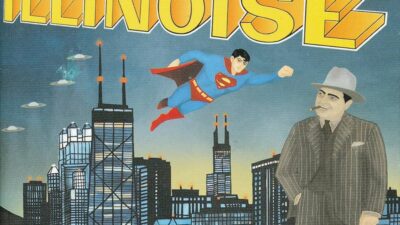
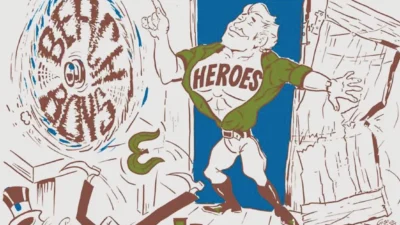
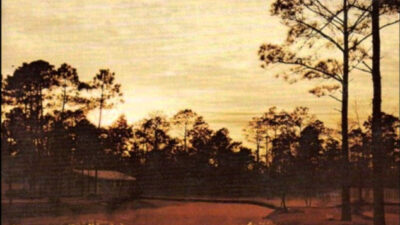


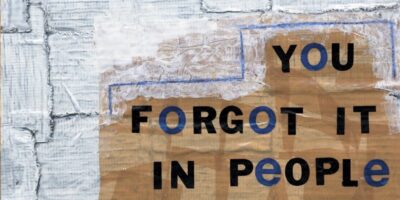


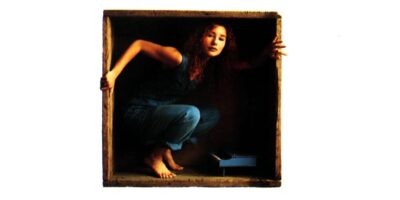
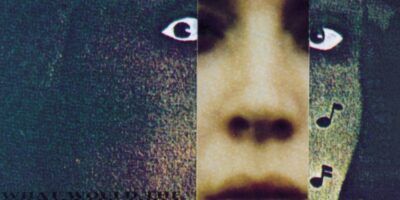




Comments